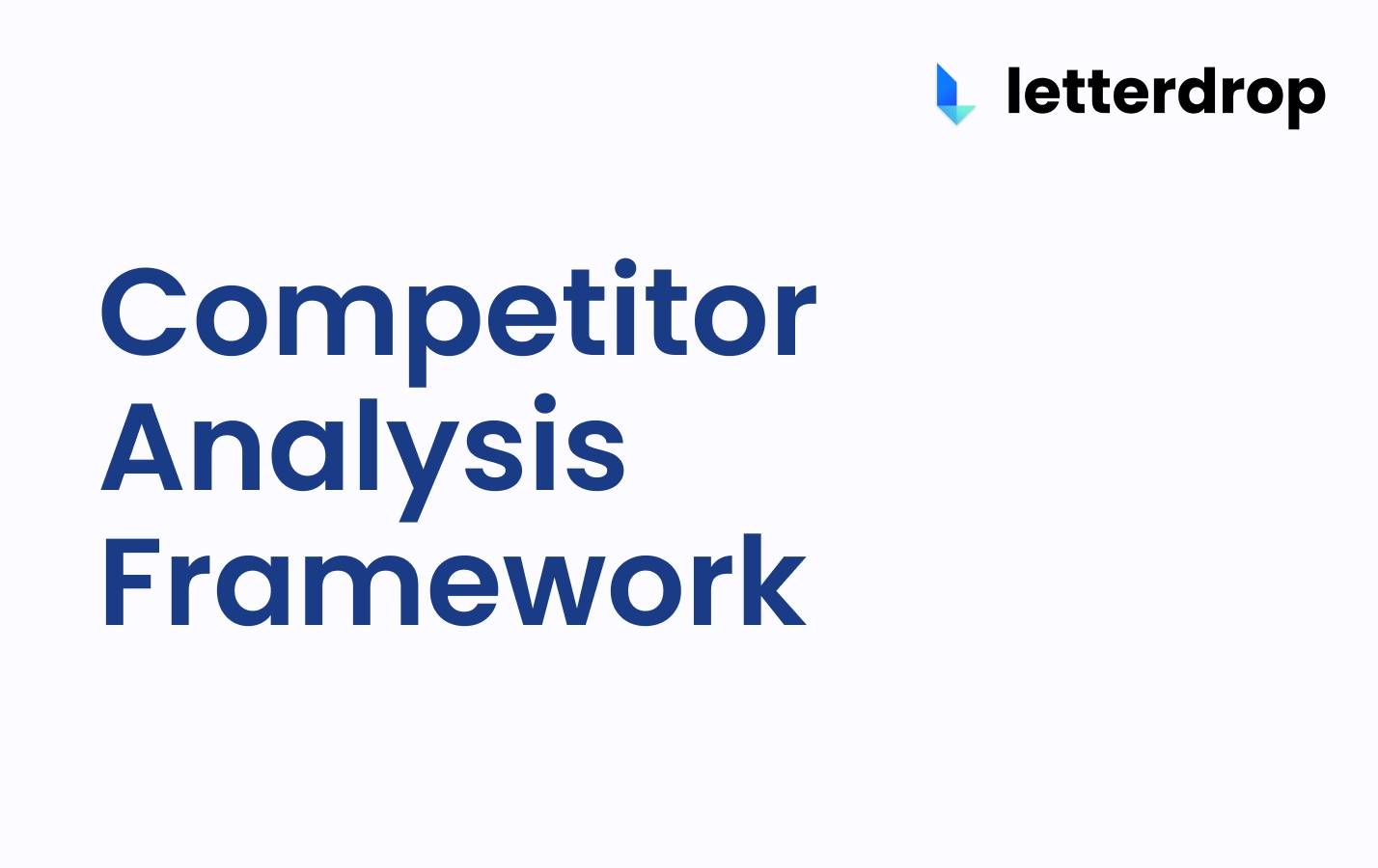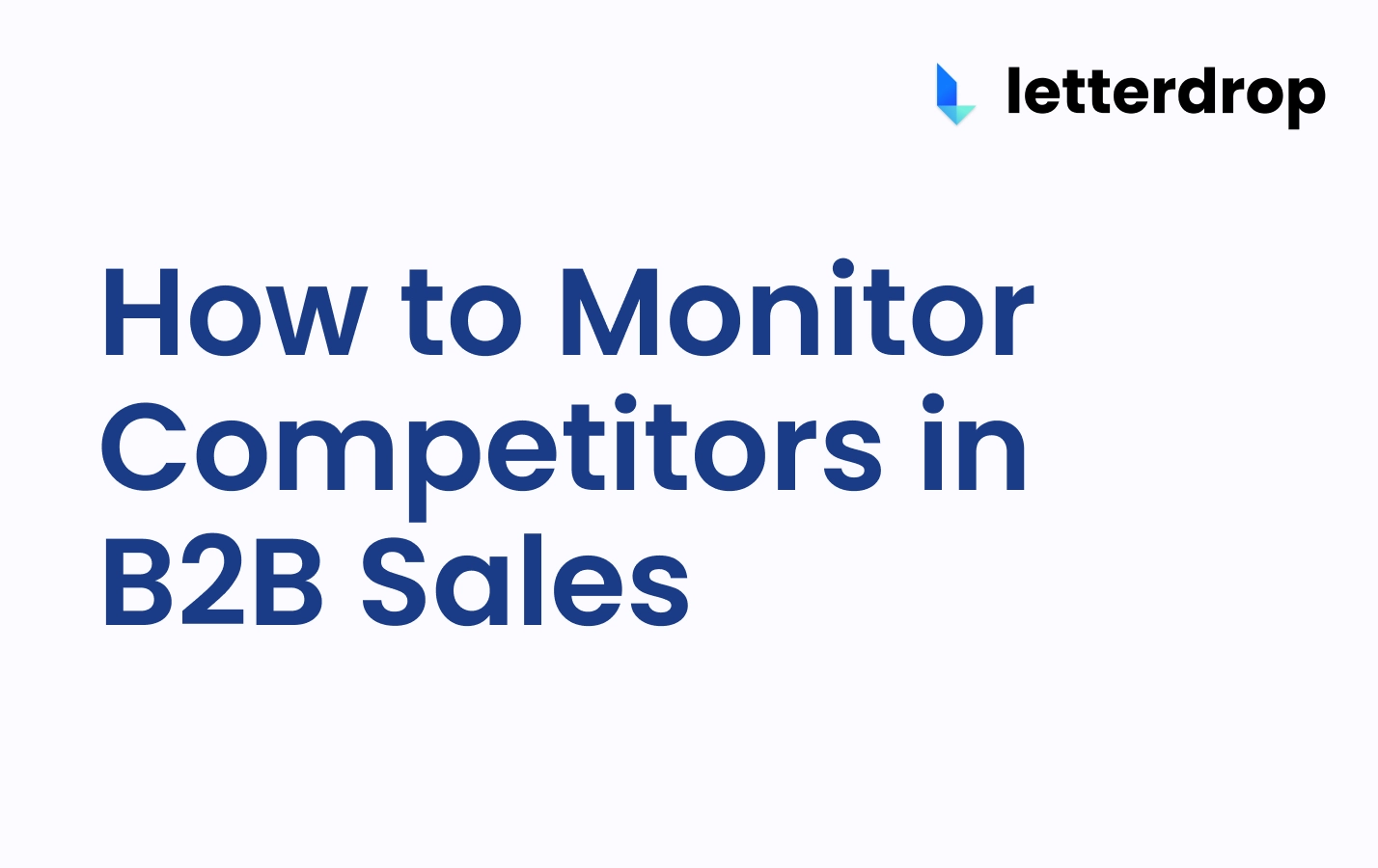Proven LinkedIn Outreach Strategy for 2026
TL;DR:
- LinkedIn outreach strategy involves consistent presence and personalized follow-ups
- LinkedIn is more targeted, has higher response rates, and allows for multiple outreach methods
- Warm LinkedIn outreach by showing up daily, monitoring engagement, and reaching out with specific content triggers
- Structure outreach sequence with a blank connection request, engaging with content, sending a personalized voice note, and a brief follow-up message
- Offer value first, build rapport, and avoid pitch slapping to drive up LinkedIn reply rates
Having improved our LinkedIn reply rate across the board by ~15%, we've realized that the key to a successful LinkedIn outreach strategy is a combination of the following:
- Creating Demand: Sharing valuable content and actively connecting with target buyers to build awareness and attract interest.
- Identifying Prospects: Tracking engagement data on LinkedIn to find leads who are in-market or already engaging with your brand.
- Starting Conversations: Reaching out to warm prospects with personalized, value-driven messages to nurture relationships and drive conversions.
This guide should set you up for success on LinkedIn, which has consistently outperformed cold outbound for us at Letterdrop.
Why Use LinkedIn for Outreach in B2B?
Its networking effects aside, there are several reasons why LinkedIn works for outreach today.
- More Targeted: LinkedIn boasts 800 million active users. You're able to filter down to your ICP and connect with key decision-makers much easier
- Multiple Outreach Methods: LinkedIn allows you multiple avenues for outreach, such as sending connection requests, direct messages, InMail messages, and message requests (for shared groups or events). This allows you to choose the best method based on success rates and the level of relationship you have with prospects
- Higher Response Rates: The average reply rate for LinkedIn messages is between 5-20%, significantly higher than the typical response rates of 1-5% seen with cold emails and calls. Conversion rates are also reportedly higher
- More Personalized and Transparent: LinkedIn allows prospects to view your profile, providing them with context on who you are before they respond. You also get a better idea of how to reach out to them based on their own profile and posts
- Less Crowded: LinkedIn is still less saturated than Facebook or Twitter (X), allowing you a better chance at prospecting
LinkedIn goes beyond a prospecting channel and into a nurture channel. It facilitates a more personal touch, if you know how to use it properly.
How to Warm Your LinkedIn Outreach
Here's how our sales team warms their LinkedIn outreach and prospects on LinkedIn to drive 21.6% reply rate.
Show Up Daily
Consistency is the key to building a credible presence on LinkedIn, which in turn:
- warms conversations
- shortens sales cycles
Simply dedicate a few minutes a day to creating posts relevant to your audience.
Your sales calls are perfect for driving these posts — 80% of your prospects are likely to have similar questions and pain points as the folks you talk to in disco calls.
(To learn more about what to post, check out our LinkedIn outbound guide.)

Monitor Who Engages With Posts
It's important to know which accounts are engaging with your content.
This shows you that they're warmer accounts and in the 3-5% of folks who are possibly ready to buy.
There are two of ways to do this:
- Manually track who likes and comments on your posts in a spreadsheet
- Use a deanonymization tool like Clearbit to identify engaged accounts
Reach Out With Specific Content Triggers
Within a relatively short time, you should reach out with a personal message based on specific triggers from the post.
(We do have a specific post on how to follow up on LinkedIn engagement that includes a way to automate DMs, likes, and even email sequences across your team.)
You should do this without pushing for something in return.
For instance, Ryan offers the prospect a helpful related resource according to what posts they interacted with.
As for the impact of reaching out to engaged prospects this way, he booked 3 meetings in 30 minutes recently.

How to Structure Your LinkedIn Outreach Sequence
Here’s a step-by-step breakdown of Ryan's approach, which you can replicate for your own LinkedIn outreach. (We also have some LinkedIn prospecting templates available.)
Day 1: Send a Blank Connection Request
Kick things off by sending a blank connection request on LinkedIn.
We send blank connection requests and still get 20% reply rate.
This non-intrusive approach gives the prospect a chance to view your profile and see if they want to connect.
Day 3: Engage with Their LinkedIn Content
After the connection request is accepted, take some time to engage with their recent LinkedIn activity. This involves liking their posts and leaving thoughtful comments.
By adding value in this way, you'll build trust with the person, which is crucial to warming up future conversations.

Day 5: Send a Personalized Voice Note with a Picture
By day five, you've hopefully built enough rapport to send a personalized LinkedIn voice note referencing a recent post or signal.
Ryan usually accompanies this with a picture to humanize the message.
Voice Note Template:
"Hey [Prospect], I noticed your recent post about [topic]. I often speak with [similar roles] who face similar challenges, and we recently helped [client] achieve [specific result] by [solution]. Would you be open to learning more?"
This helps you stand out a little more.

Day 7: Send a Brief Follow-Up Message
If the prospect hasn’t responded by day seven, send a light follow-up message.
The goal here is to be brief, non-pushy, and to offer an easy way for the prospect to respond or refer you to someone else.
Follow-Up Template:
"Hey [Prospect], any feedback on my voice note? Let me know if it’s better to reach out to [colleague’s name] if they’re the right person to discuss this topic."
This method keeps you top of mind without overwhelming the prospect.
Don't Pitch Slap — Offer Value First
By showing up consistently, building genuine rapports with prospects, and only making an ask if that prospect has given a real signal, you can also drive up your LinkedIn reply rate by ~15%.
Don't pitch slap — earn that ask.
If you're interested in automating your LinkedIn presence like Ryan, reach out to us.
Subscribe to newsletter
No-BS GTM strategies to build more pipeline in your inbox every week
Related Reading
Some other posts you might find helpful















